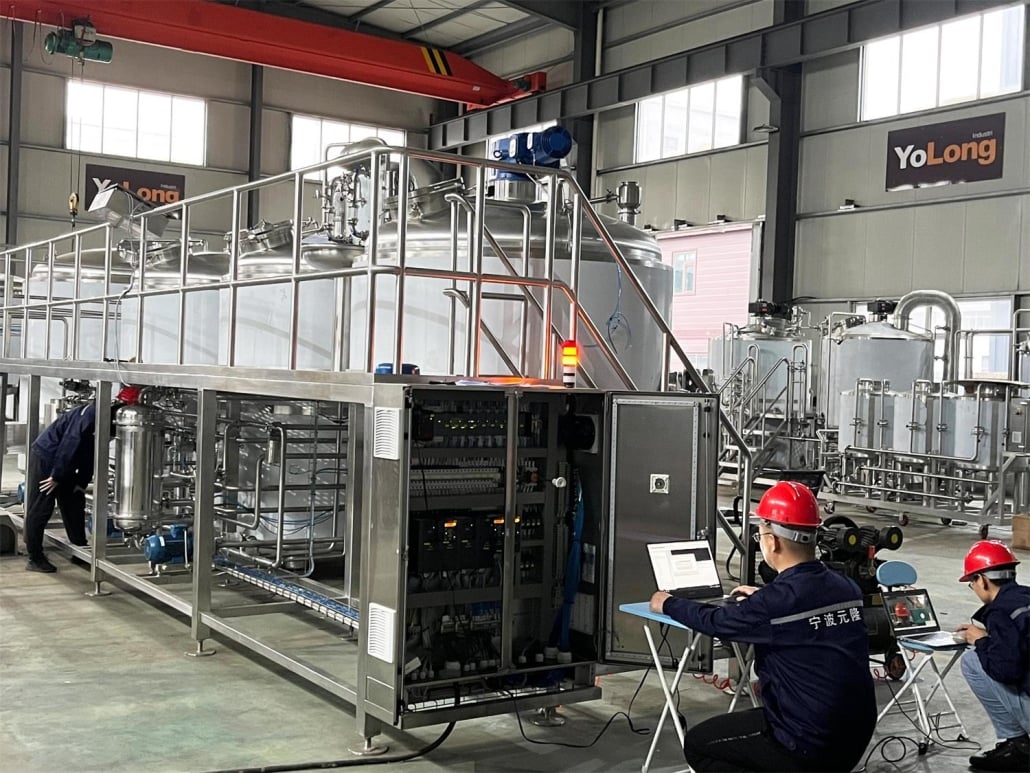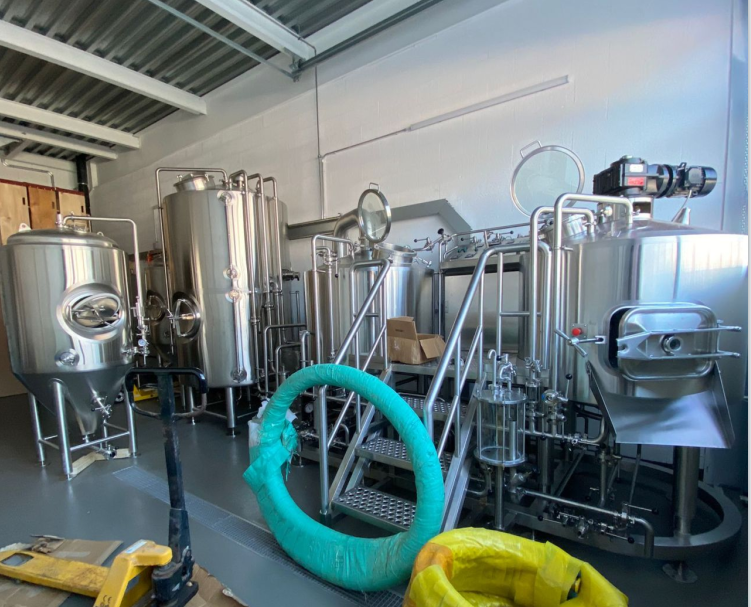Mini Brew Conical Fermenter
Overview of Mini Brew Conical Fermenters
Homebrewing has grown in popularity, and with it, the demand for efficient, high-quality equipment. Enter the mini brew conical fermenter: a small yet powerful tool designed to streamline the brewing process. These fermenters offer numerous advantages, such as better sediment separation and easy sampling. This comprehensive guide will cover everything you need to know about mini brew conical fermenters, from equipment types and brewing processes to installation, maintenance, and supplier comparisons.
Equipment Guide: Choosing the Right Mini Brew Conical Fermenter
When selecting a mini brew conical fermenter, several factors come into play, including material, capacity, and design. Conical fermenters, typically made from stainless steel or food-grade plastic, offer durability and ease of cleaning. They range in size, accommodating both small batches and larger homebrewing operations.

Types of Mini Brew Conical Fermenters
| Type | Material | Capacity | Features |
|---|---|---|---|
| Stainless Steel | Stainless Steel | 1-14 gallons | Durable, easy to clean, non-reactive |
| Plastic | Food-grade Plastic | 1-7 gallons | Lightweight, affordable, transparent |
The Brewing Process with Mini Brew Conical Fermenters
Brewing with a mini brew conical fermenter involves several steps: mashing, boiling, fermenting, conditioning, and bottling. Each step benefits from the design of the conical fermenter, which ensures better sediment separation and easier yeast harvesting.
Brewing Process Details
- Mashing: Involves converting starches in grains to sugars.
- Boiling: Adds hops and sterilizes the wort.
- Fermenting: Yeast converts sugars to alcohol in the conical fermenter.
- Conditioning: Enhances flavor and carbonation.
- Bottling: Transfers the finished beer to bottles for aging and consumption.
Capacity, Space, Design, Layout, and Customization
| Attribute | Details |
|---|---|
| Capacity | 1 to 14 gallons, suitable for various batch sizes. |
| Space | Compact designs fit in small brewing areas. |
| Design | Conical shape allows for efficient sediment separation. |
| Layout | Typically includes valves for easy sampling and yeast harvesting. |
| Customization | Options for additional fittings, thermometers, and pressure gauges. |
Suppliers and Price Range
| Supplier | Price Range | Features |
|---|---|---|
| BrewTech | $200 – $500 | High-quality stainless steel, customizable features. |
| FastFerment | $100 – $300 | Affordable plastic options, easy to use. |
| Spike Brewing | $300 – $700 | Premium build, advanced features. |
Installation, Operation, and Maintenance
| Aspect | Details |
|---|---|
| Installation | Simple setup with clear instructions, minimal tools required. |
| Operation | User-friendly, with valves for easy transferring and sampling. |
| Maintenance | Regular cleaning with sanitizing solutions, occasional part replacements. |
How to Choose a Supplier
| Consideration | Details |
|---|---|
| Reputation | Look for suppliers with positive reviews and a solid track record. |
| Price | Compare prices to ensure competitive rates without compromising quality. |
| Features | Ensure the fermenter includes necessary features like valves and thermometers. |
| Customer Support | Opt for suppliers offering robust customer support and warranties. |
Pros and Cons: Advantages and Limitations
| Aspect | Advantages | Limitations |
|---|---|---|
| Material | Durable, easy to clean (stainless steel); lightweight, affordable (plastic) | Potential for scratching (plastic), higher cost (stainless steel) |
| Design | Efficient sediment separation, easy yeast harvesting | Larger footprint compared to traditional fermenters |
| Usability | User-friendly, easy sampling, and transferring | Initial learning curve for beginners |
Advantages of Mini Brew Conical Fermenters
Mini brew conical fermenters bring several benefits to the homebrewing process. They are designed for efficient sediment separation, which means clearer beer and easier yeast harvesting. The conical shape allows for the sediment to settle at the bottom, making it easy to remove without disturbing the rest of the brew. Additionally, these fermenters often come with valves and fittings that simplify sampling and transferring beer, enhancing the overall brewing experience.
Limitations of Mini Brew Conical Fermenters
Despite their many advantages, mini brew conical fermenters also have some limitations. Stainless steel models can be more expensive compared to other types of fermenters, and plastic models, while affordable, can be prone to scratching and staining. The larger footprint of these fermenters might require more space in your brewing area, which could be a concern for those with limited room.
Detailed Comparison: Stainless Steel vs. Plastic
| Feature | Stainless Steel | Plastic |
|---|---|---|
| Durability | Highly durable, long-lasting | Less durable, potential for scratches |
| Cleaning | Easy to clean, non-reactive | Requires careful cleaning to avoid scratches |
| Weight | Heavier, sturdy | Lightweight, easy to handle |
| Price | More expensive | More affordable |
| Aesthetics | Professional, sleek appearance | Functional, less visually appealing |
How to Build a Mini Brew Conical Fermenter
Building a mini brew conical fermenter can be a rewarding DIY project for homebrewers who enjoy hands-on tasks. The process involves selecting appropriate materials, such as stainless steel or plastic, and assembling the components, including the conical body, valves, and fittings. Detailed guides and kits are available online, providing step-by-step instructions to help you create a functional and efficient fermenter.
Installation, Operation, and Maintenance
Proper installation, operation, and maintenance of your mini brew conical fermenter are crucial for ensuring optimal performance and longevity. During installation, follow the manufacturer’s instructions carefully, ensuring all fittings and seals are secure. Regular cleaning and sanitization are essential to prevent contamination and maintain the quality of your brews. Periodic inspections and part replacements, such as gaskets and seals, will keep your fermenter in top condition.
Comparing Suppliers and Price Ranges
When choosing a supplier for your mini brew conical fermenter, consider factors such as reputation, price, features, and customer support. Reputable suppliers with positive reviews and a solid track record are more likely to provide high-quality products and reliable customer service. Comparing prices across different suppliers can help you find competitive rates, ensuring you get the best value for your investment. Additionally, look for suppliers that offer robust customer support and warranties to address any issues that may arise.
Installation, Operation, and Maintenance Guide
| Task | Details |
|---|---|
| Installation | Follow manufacturer instructions, ensure secure fittings, minimal tools required. |
| Operation | User-friendly, valves for easy sampling and transferring. |
| Maintenance | Regular cleaning with sanitizing solutions, occasional part replacements. |
How to Choose a Supplier: Key Considerations
| Consideration | Details |
|---|---|
| Reputation | Look for suppliers with positive reviews and a solid track record. |
| Price | Compare prices to ensure competitive rates without compromising quality. |
| Features | Ensure the fermenter includes necessary features like valves and thermometers. |
| Customer Support | Opt for suppliers offering robust customer support and warranties. |
Comparing Pros and Cons: Advantages and Limitations
| Aspect | Advantages | Limitations |
|---|---|---|
| Material | Durable, easy to clean (stainless steel); lightweight, affordable (plastic) | Potential for scratching (plastic), higher cost (stainless steel) |
| Design | Efficient sediment separation, easy yeast harvesting | Larger footprint compared to traditional fermenters |
| Usability | User-friendly, easy sampling, and transferring | Initial learning curve for beginners |

FAQ
| Question | Answer |
|---|---|
| What is a mini brew conical fermenter? | A compact fermenter designed for homebrewing, featuring a conical shape for better sediment separation. |
| Why choose a stainless steel fermenter? | Stainless steel fermenters are durable, easy to clean, and non-reactive, making them ideal for brewing. |
| How do I clean my mini brew conical fermenter? | Regularly use sanitizing solutions and ensure all parts are thoroughly cleaned and dried. |
| Can I customize my fermenter? | Yes, many suppliers offer customization options, including additional fittings, thermometers, and pressure gauges. |
| What size fermenter do I need? | The size depends on your brewing capacity; mini brew conical fermenters range from 1 to 14 gallons. |
Conclusion
Mini brew conical fermenters are a valuable addition to any homebrewing setup, offering numerous benefits such as efficient sediment separation, easy sampling, and user-friendly operation. By carefully considering the material, design, capacity, and supplier, you can select the perfect fermenter to enhance your brewing experience. With proper installation, operation, and maintenance, your mini brew conical fermenter will help you produce high-quality, delicious beer for years to come.
Share this entry
Interested in learning more about Brewing Systems including additional details and pricing information? Please use the form below to contact us!
YOLONG BREWERY EQUIPMENT FAQS
- Commercial Brewery / Craft Brewery / Microbrewery / Nanobrewery
- What is The Difference Between Craft Beer and Industrial Beer?
- The Bespoke Differences In Custom Brewing Systems
- Everything You Need to Know About Kettle Souring
- How to Choose Brewing Equipment for Your business?
- How To Choose The-Best Partner To Build Your Commercial Microbrewing System?
- Two Detection Sensors That You Need To Use In Your Brewhouse System
- Remote Control Applications in Brewing Equipment/How does it work?
- How To Clean Your Brand New Brewery Tanks?
